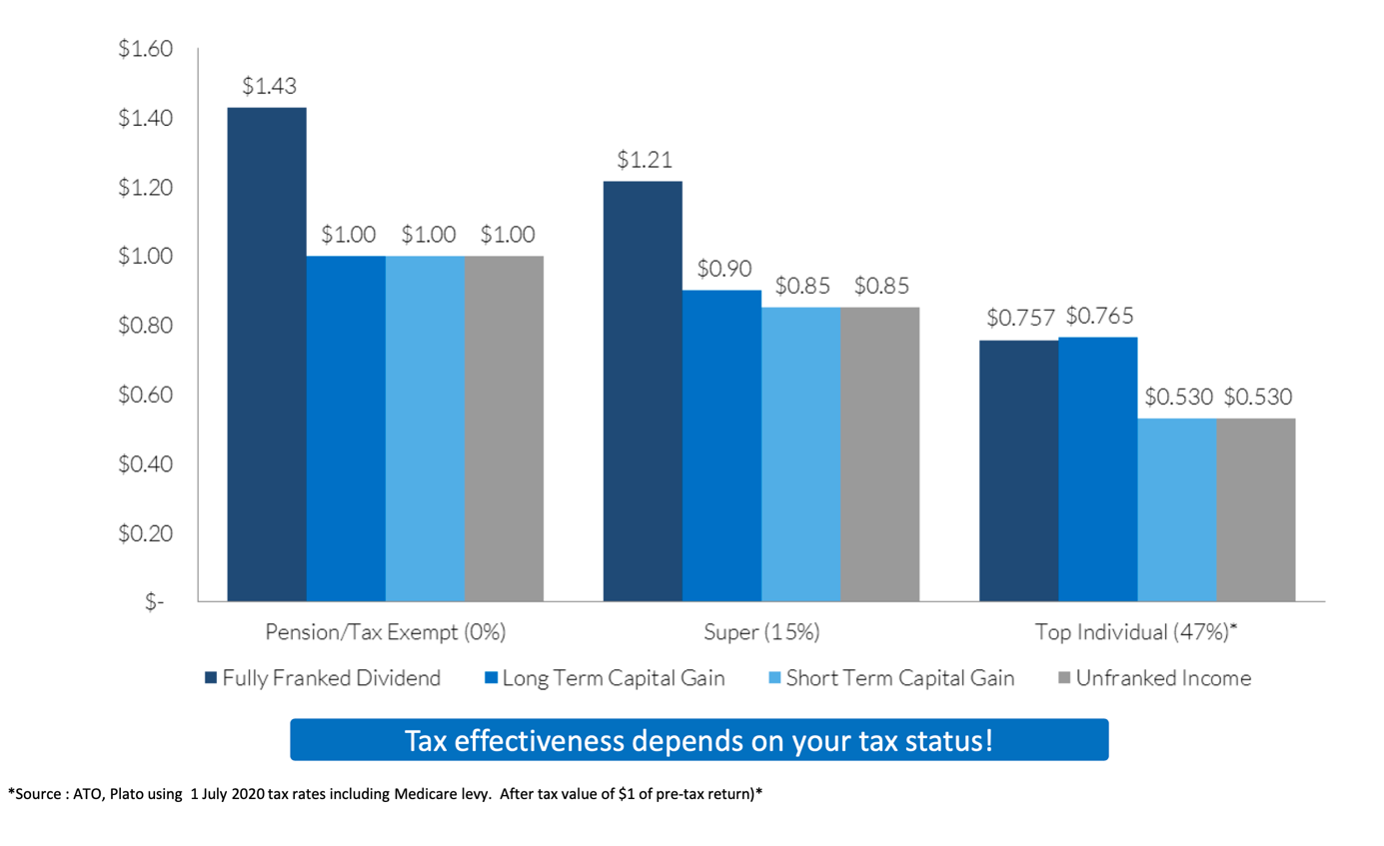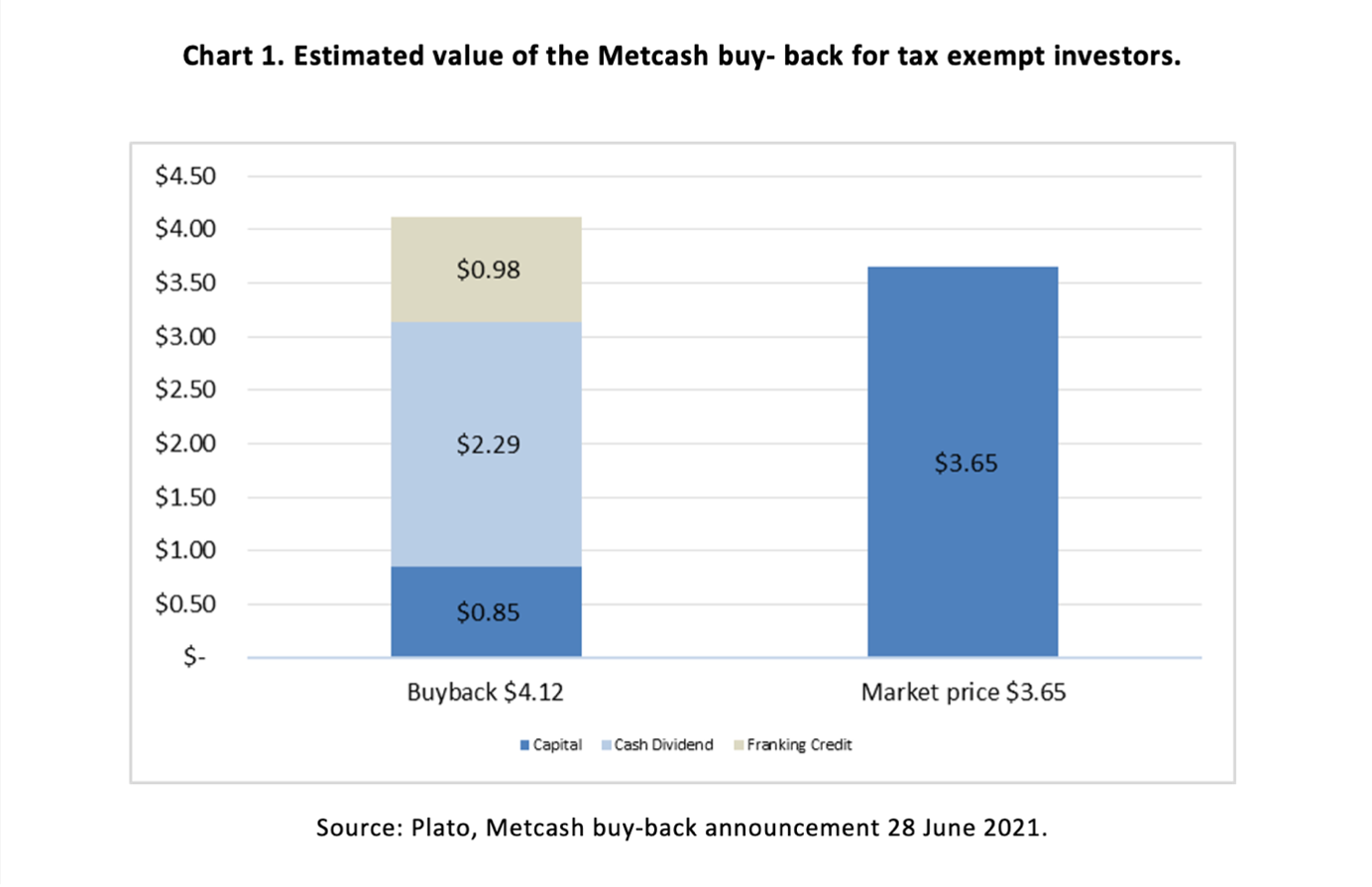When tax should be a boon, not a burden
As many Australians spend hours in the coming weeks and months preparing tax returns, for retirees it may be a good time to reassess the tax effectiveness of share portfolios.
During the 2021 financial year, the ASX200 generated some $60 billion in cash dividends – an exceptional return given the dividend cuts that occurred during the height of the COVID market shock.
But investors, particularly retirees, should consider if after-tax alpha is being left on the table.
On top of the $60 billion in cash dividends, our team’s internal data puts the value of franking credits paid by ASX200 constituents during the period at $19.6 billion.
Dividend darlings of the financial year paid out more in franking alone (on top of dividends) than what investors would likely get in term deposits today. Take Fortescue Metals, its gross yield of 15.1% over the past 12 months includes 4.5% in franking. JB Hi-fi’s gross yield is 7.6% including 2.3% of franking.
For all Australian investors, bar those in the top tax bracket, fully franked dividends remain the most tax-effect form of income. This effectiveness is magnified for retirees, for whom one dollar of pre-tax income from fully franked dividends is worth $1.43.

As of 1 July, there are 89 companies on the ASX paying fully franked dividends. We don’t advocate favouring these companies exclusively but ensuring income portfolios have a bias to fully franked dividend payers will inevitably provide additional after-tax income.
Despite the significant representation of retirees amongst the clientele of Australia’s investment management industry, most investment performance surveys don’t even include franking credits, making the alpha (or lack thereof) generated by tax benefits largely disguised.
On track for more buybacks
ANZ is the latest company to announce a buyback, undertaken on-market because it doesn’t have excess franking credits.
A buyback is a prudent approach to capital management, with it likely to reduce ANZ’s Common Equity Tier 1 capital ratio by 35 basis points to around 12.2%, still well above APRA’s unquestionably strong level of 10.5%.
The fact APRA and the boards are willing to consider buybacks at this time strengthens the case for more to come and we believe the ANZ on-market buyback is likely to be followed by off-market buybacks by some of ANZ’s competitors, with a significant write-back of provisions and strong increases in cash earnings across the banking sector in recent months.
Off-market buybacks are another key element in a tax-effective dividend investment strategy and another driver of strong additional after-tax alpha as excess franking credits are distributed to investors.
Consider the latest major off-market buyback in the ASX200, announced by Metcash on 28 June.
For tax-exempt Australian investors, we estimate the buyback will be worth approximately $4.12, representing about $0.47 or 13% more than the market price of Metcash on the day the buy-back was announced.
This is an estimate based on the Metcash market price on the trading day prior to the buyback of $3.65 (the actual price used for the buyback will be the volume-weighted average price of Metcash shares in the five trading days up to and including 13 August, 2021). It also assumes the maximum 14% discount applies.
The final equation for retirees based on the above is a $3.14 buy-back price, with the capital component being $0.85 and the other $2.29 representing a fully franked dividend, with a $0.98 franking credit attached. For retirees, a free lunch of sorts.

However, for investors in higher tax brackets, the value of such a buyback becomes diluted. This means most managed investments do not participate in off-market buy-backs because they lose value pre-tax as cash proceeds are usually less than the market price.
In a world where nearly rock-bottom cash rates have lingered for longer than ever tax-effective portfolio management can provide a silver lining on top of already strong dividends.
In the coming financial year, we expect more buybacks and higher levels of franking as the more traditional income-generating sectors continue to recover – retirees and other low-tax investors should ensure they don’t miss out.
While tax is a burden for many at this time of the year, it should be a boon for retirees whose dividend income strategies are managed year-round with their unique taxation circumstances front of mind.
Plato manages its equity income portfolios to optimise yield for retirees, SMSFs and other low-tax investors.
Discover more about dividend income on the Plato website.
2 topics
4 stocks mentioned

